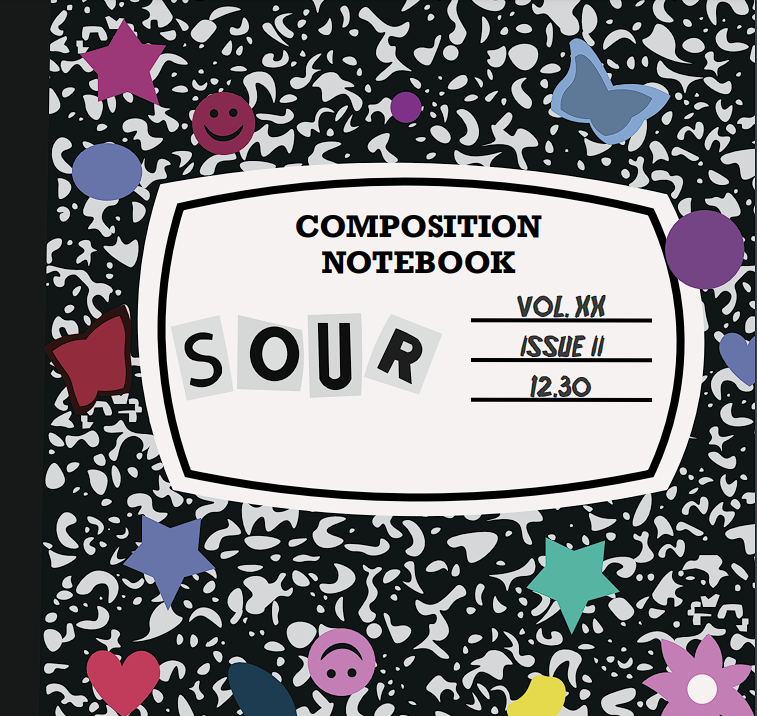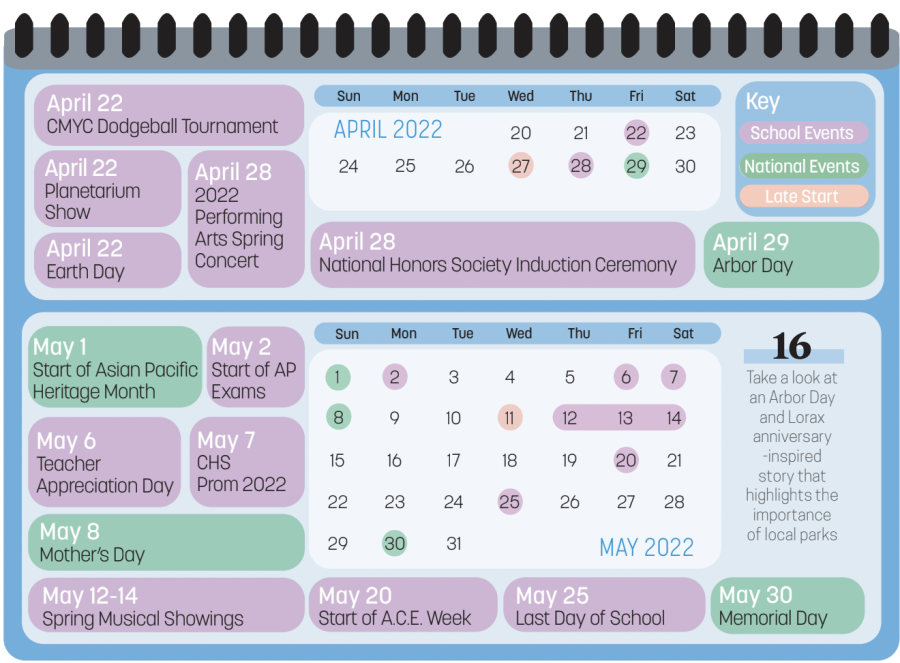Music is an extremely influential and prominent part of children’s lives, increasingly so with the popularity of portable music devices, according to the 2010 Kaiser Family Foundation’s Study, “Generation M2.” The study also concluded that the degree to which music and emotion correlate completely depends upon the listener. For guitarist and junior William Chen, music is an outlet to creatively express his emotions.
“I know it’s a cliché, but (music) really is just a way for me to express myself and free my mind,” Chen said. Music theory teacher Maggie Hite said she believes music is a way to express emotion that cannot be expressed otherwise.
“We don’t participate in music in order to win trophies or improve test scores; we do it because our education and our lives won’t be complete without it,” Hite said via email.
Although it does not necessarily determine one’s personality, Hite said she considers music a prominent factor of one’s mood. Guitarist and senior Daniel Lukovic said he agrees with Hite’s ideas.
“The music you listen to definitely amplifies or intensifies your mood, but I don’t think it affects personality as much as people think,” Lukovic said.
Backing up Lukovic, the “Generation M2” study implies that music has the power to influence or even have harmful effects on teenagers’ personalities.
Psychology teacher Robin Pletcher disagrees. She said that music taste does not dictate personality, but that music taste is influenced by factors such as environment and culture.
“Students are so dependent on music now,” Pletcher said. “I see most kids walking down the hall with their headphones in not interacting with their peers.”
Chen said he does not believe his personality has been affected by his music taste.
“However, I think to some degree personality dictates music taste but it’s still not a huge factor. People listen to what they like, plain and simple,” Chen said.
According to an Atlantic article, “Secondhand Music,” everyday sounds can subconsciously affect one’s mood throughout the day. The article states common noises can enter people’s minds and influence their thoughts.
“Music is defined as organized noise. With this in mind, I would not consider background noise throughout the day as music. I actually find excessive noise such as walking down the hallway very distracting,” Chen said.
Hite said she also does not consider everyday noises music, although they can inspire music.
“I think that it’s interesting that we very rarely experience pure silence just like we rarely experience pure darkness. There is almost always something around us that creates light or makes noise,” she said.
Lukovic said he agreed with Chen and Hite, believing that background noises throughout the day do not qualify as music. He does, however, believe that they can control people’s moods.
“I think subconsciously the little noises throughout the day to make a difference. The slamming of a locker is going to make you tense, annoying voices are going to keep you on edge, the hum of a computer can be calming.” Lukovic said.
The “Secondhand Music” article also described the difference between happy and sad tones in music as major mode and minor mode that Hite agreed with. Major mode, which produces happy emotions, is the most common musical mode. Hite said she would describe major mode, or third note, as uplifting. She said lowering a note just half a step can create a huge difference in the tone of a piece of music.
“This is a gross generalization, by the way. Plenty of music is both major and sad or minor and uplifting. Some find heavy metal or hard rock grating, while others find it enjoyable and relaxing,” Hite said.
Chen and Lukovic said they have this in mind when they produce music both individually and with their bands.
Lukovic said, “It’s allowed me to express myself in ways that when I’m sad I don’t wallow, I have music. I’m angry I don’t throw something, I have music. It’s always there for you, no matter what.”


































![British royalty are American celebrities [opinion]](https://hilite.org/wp-content/uploads/2024/03/Screenshot-2024-03-24-1.44.57-PM.png)


















![Review: “Suits” is a perfect blend of legal drama and humor [MUSE]](https://hilite.org/wp-content/uploads/2024/04/unnamed-1.png)
![Chelsea Meng on her instagram-run bracelet shop [Biz Buzz]](https://hilite.org/wp-content/uploads/2024/04/IMG_2446-1200x838.jpg)
![Review: Quiet on Set: The Dark Side of Kids TV is the long awaited exposé of pedophilia within the children’s entertainment industry [MUSE]](https://hilite.org/wp-content/uploads/2024/04/unnamed.jpg)
![Review: “The Iron Claw” cannot get enough praise [MUSE]](https://hilite.org/wp-content/uploads/2024/04/unnamed.png)
![Review: “The Bear” sets an unbelievably high bar for future comedy shows [MUSE]](https://hilite.org/wp-content/uploads/2024/03/unnamed.png)
![Review in Print: Maripaz Villar brings a delightfully unique style to the world of WEBTOON [MUSE]](https://hilite.org/wp-content/uploads/2023/12/maripazcover-1200x960.jpg)
![Review: “The Sword of Kaigen” is a masterpiece [MUSE]](https://hilite.org/wp-content/uploads/2023/11/Screenshot-2023-11-26-201051.png)
![Review: Gateron Oil Kings, great linear switches, okay price [MUSE]](https://hilite.org/wp-content/uploads/2023/11/Screenshot-2023-11-26-200553.png)
![Review: “A Haunting in Venice” is a significant improvement from other Agatha Christie adaptations [MUSE]](https://hilite.org/wp-content/uploads/2023/11/e7ee2938a6d422669771bce6d8088521.jpg)
![Review: A Thanksgiving story from elementary school, still just as interesting [MUSE]](https://hilite.org/wp-content/uploads/2023/11/Screenshot-2023-11-26-195514-987x1200.png)
![Review: When I Fly Towards You, cute, uplifting youth drama [MUSE]](https://hilite.org/wp-content/uploads/2023/09/When-I-Fly-Towards-You-Chinese-drama.png)
![Postcards from Muse: Hawaii Travel Diary [MUSE]](https://hilite.org/wp-content/uploads/2023/09/My-project-1-1200x1200.jpg)
![Review: Ladybug & Cat Noir: The Movie, departure from original show [MUSE]](https://hilite.org/wp-content/uploads/2023/09/Ladybug__Cat_Noir_-_The_Movie_poster.jpg)
![Review in Print: Hidden Love is the cute, uplifting drama everyone needs [MUSE]](https://hilite.org/wp-content/uploads/2023/09/hiddenlovecover-e1693597208225-1030x1200.png)
![Review in Print: Heartstopper is the heartwarming queer romance we all need [MUSE]](https://hilite.org/wp-content/uploads/2023/08/museheartstoppercover-1200x654.png)






















![Review: Ladybug & Cat Noir: The Movie, departure from original show [MUSE]](https://hilite.org/wp-content/uploads/2023/09/Ladybug__Cat_Noir_-_The_Movie_poster-221x300.jpg)

![Review: Next in Fashion season two survives changes, becomes a valuable pop culture artifact [MUSE]](https://hilite.org/wp-content/uploads/2023/03/Screen-Shot-2023-03-09-at-11.05.05-AM-300x214.png)
![Review: Is The Stormlight Archive worth it? [MUSE]](https://hilite.org/wp-content/uploads/2023/10/unnamed-1-184x300.png)





